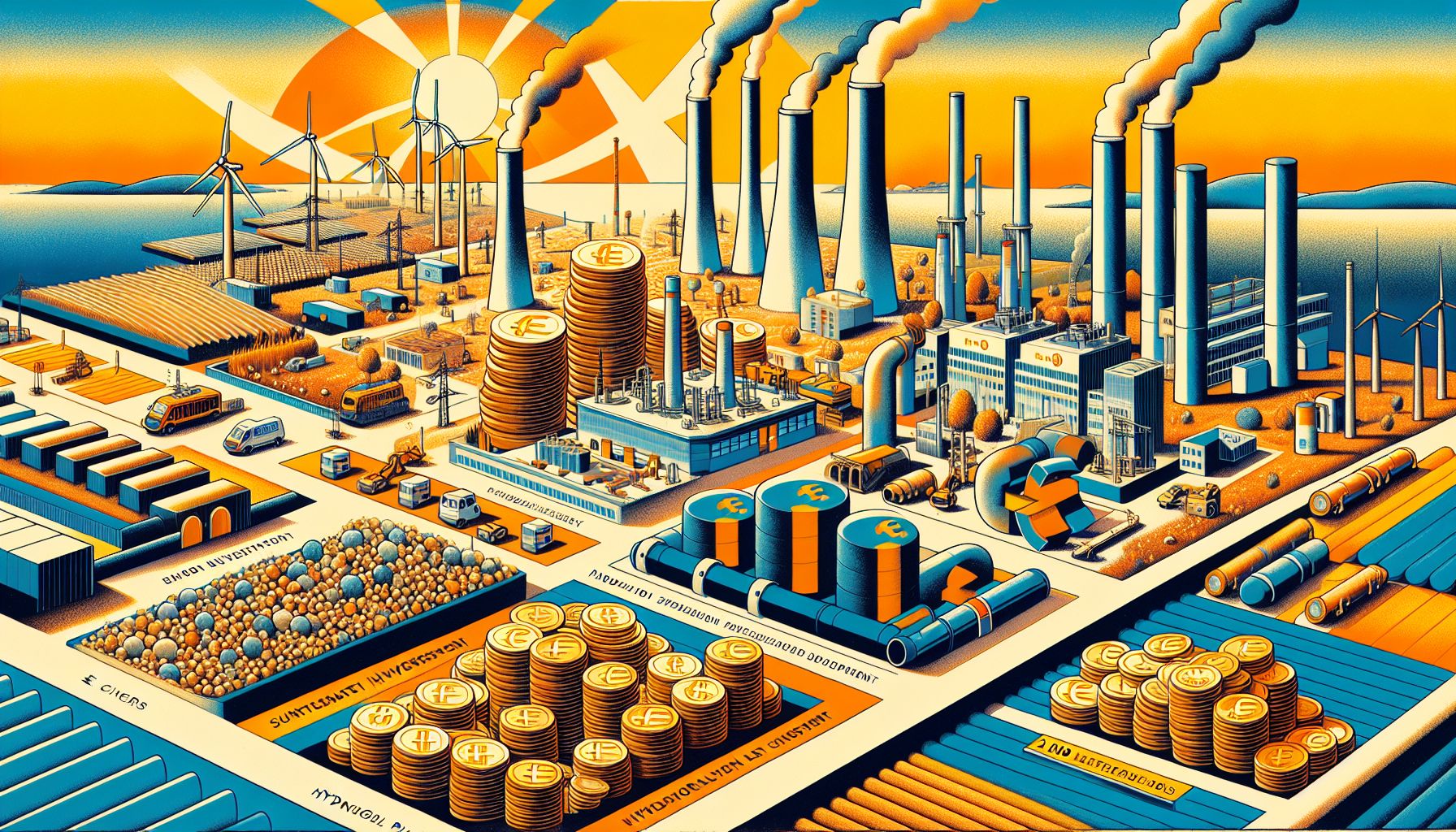Germany Commits €4.6 Billion to Accelerate Hydrogen Infrastructure

Germany, Tuesday, 16 July 2024.
Germany announces a substantial €4.6 billion investment in hydrogen projects to fast-track its energy transition. The initiative, backed by both government and industry giants, aims to develop production, storage, and transport infrastructure, including 2,000 kilometers of pipelines. This move signifies a major push towards sustainable energy solutions and decarbonization of the German economy.
Government and Industry Collaboration
The German government, alongside prominent industry players such as RWE AG, Air Liquide SA, and EWE AG, has committed to a significant investment in hydrogen infrastructure. This collaborative effort combines €4.6 billion in government subsidies with an additional €3.3 billion from these companies, culminating in a total investment of €7.9 billion by 2030[1]. The initiative underscores a unified approach to transitioning from fossil fuels to renewable energy sources.
Scope of the Investment
The funding will be distributed across 23 projects that focus on the production, storage, and transportation of hydrogen. Key developments include the construction of a 100-megawatt electrolyzer in Hamburg-Moorburg and the establishment of hydrogen infrastructure across Germany. These projects are part of the ‘Important Projects of Common European Interest’ (IPCEI) and aim to integrate cross-state clusters to enhance the hydrogen network[2].
Strategic Importance of Hydrogen
Hydrogen is viewed as a pivotal element in reducing carbon emissions. Unlike fossil fuels, the combustion of hydrogen produces no harmful emissions, making it a clean energy source. According to Economy Minister Robert Habeck, hydrogen will play a crucial role in decarbonizing German industries and the energy sector, fostering a climate-neutral and sustainable economy[3].
Infrastructure Development
The planned infrastructure includes approximately 2,000 kilometers of pipelines designed to transport hydrogen across industrial centers. This extensive network will facilitate the large-scale production and distribution of hydrogen, ensuring that it becomes a viable alternative to conventional energy sources. Moreover, innovative and secure storage solutions are being developed to support the new hydrogen economy[4].
Future Prospects and Global Leadership
Germany’s investment in hydrogen technology is part of a broader strategy to become a global leader in this field. The government has outlined ambitious plans to adopt an import strategy for hydrogen and its derivatives, aiming to import at least 45 terawatt-hours of green hydrogen by 2030[5]. This strategic move is expected to create sustainable jobs, enhance energy security, and contribute significantly to global climate protection efforts.

